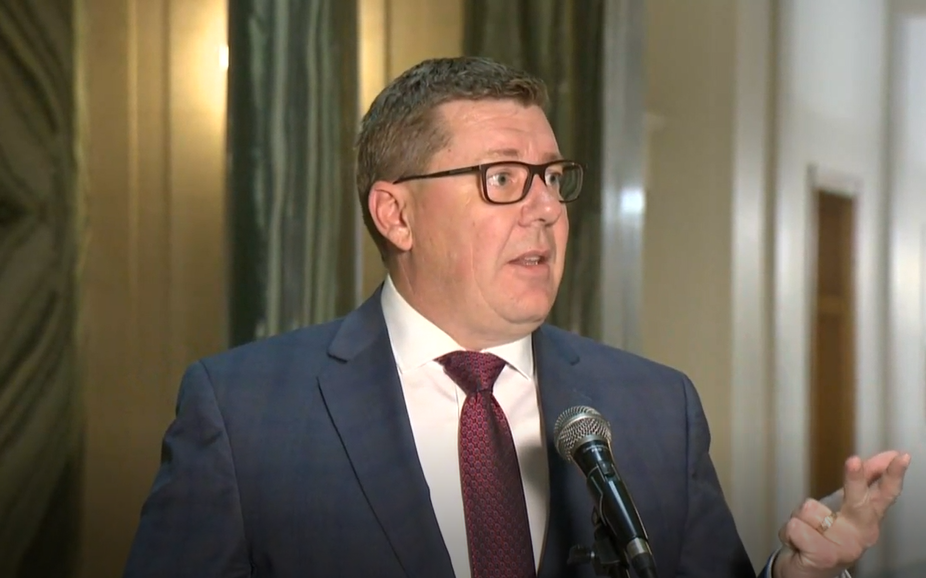At the legislature Monday, Saskatchewan Premier Scott Moe defended comments made last week regarding data showing Saskatchewan has the highest per capita carbon emissions in Canada.

“I’ll stand with the ‘I don’t care’ right now when it comes to the metric of per capita emissions,” Moe told reporters following question period.
“Could I have chosen something a little less controversial? Potentially. But I think this is a time for our province to be bold.”
Moe made the comments, which were first reported by the Prince Albert Daily Herald, while fielding questions at a Prince Albert Chamber of Commerce event Friday.
In response to an audience question about Saskatchewan’s work on the environment and climate change, Moe said “I don’t care” in reference to occasions where people remind him that data shows Saskatchewan has the highest per capita emissions in Canada.
Moe implied in his response that those emissions levels are directly tied to demand for Saskatchewan products, and that he thinks of the province as a world leader in delivering sustainable exports.
After criticism of the comments built online over the weekend, Saskatchewan NDP Environment, Energy and Resources Critic Erika Ritchie brought them up in question period Monday, calling them “irresponsible” and suggesting the government needs to do more to lower emissions and address climate change.
“We need serious leadership, and an all-government and economy-wide response to this problem and those remarks are not the kinds of things that give assurance to investors,” she later told reporters in the rotunda.
“We are facing a global crisis. All governments need to be taking this seriously and putting all their efforts towards reducing emissions.”
But later Monday, Moe again defended his dismissal of per capita measurements by pointing out that most of the products produced in Saskatchewan are exported beyond its borders.

Get breaking National news
He said Saskatchewan products are produced with less-damaging methods than are used in other jurisdictions, though he did not provide proof Monday to back up that statement.
“We have some of the highest-quality products in the world but they’re competitively priced, And they’re the most sustainable products that you can access in the world,” he said.
Saskatchewan has outlined emissions targets in its Prairie Resilience climate change strategy, which was put into effect in 2018 to help the province “cope with, adapt to, and recover from stress and change.”
SaskPower has since pledged to reduce its greenhouse gas emissions by 50 per cent over 2005 levels by 2030, and has announced intentions for net-zero GHG emissions by 2050.





Comments
Want to discuss? Please read our Commenting Policy first.